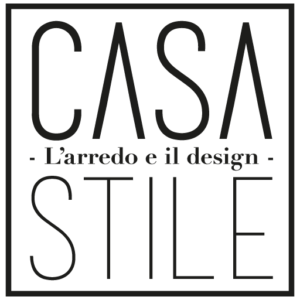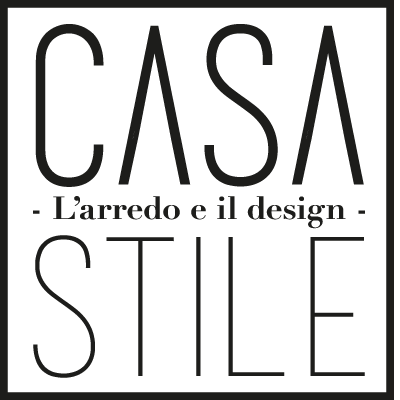Parà has always had important objectives linked to sustainability, and the company manages to reach them thanks to constant investment in Research and Development. For outdoors, in particular, mainly two types of fibres are used: polyester and acrylic fibre. In both cases important recycling projects were implemented. Barbara Ferrari, Head of R&D revealed the details to us.
 «As far as polyester is concerned – explains Barbara Ferrari – we are the first and only company in the world to have introduced a collection of fabrics for awnings made of GRS (Global Recycled Standard) certified recycled PET to the market. Tempotest® Starlight Blue ensures a reduced environmental impact in terms of saving water, energy and CO2 compared to using virgin polyester». The fabrics in this collection are produced by means of a sustainable process which allows for energy savings of 60%, achieving 45% less CO2 emissions and a 90% reduction in water consumption. 21 m2 of fabric can be obtained from the recycling of 328 plastic bottles (e.g. 112 1.5-litre bottles and 216 0.5-litre bottles). GRS-certified recycled PET yarn turns into fabric with incredible elasticity and and resistance to wear and tear, making it particularly suitable for large-scale structures. «We always like to underline – continues Barbara Ferrari – that our recycled PET fabrics perform in exactly the same way as fabrics made of virgin polyeste».
«As far as polyester is concerned – explains Barbara Ferrari – we are the first and only company in the world to have introduced a collection of fabrics for awnings made of GRS (Global Recycled Standard) certified recycled PET to the market. Tempotest® Starlight Blue ensures a reduced environmental impact in terms of saving water, energy and CO2 compared to using virgin polyester». The fabrics in this collection are produced by means of a sustainable process which allows for energy savings of 60%, achieving 45% less CO2 emissions and a 90% reduction in water consumption. 21 m2 of fabric can be obtained from the recycling of 328 plastic bottles (e.g. 112 1.5-litre bottles and 216 0.5-litre bottles). GRS-certified recycled PET yarn turns into fabric with incredible elasticity and and resistance to wear and tear, making it particularly suitable for large-scale structures. «We always like to underline – continues Barbara Ferrari – that our recycled PET fabrics perform in exactly the same way as fabrics made of virgin polyeste».
 As for acrylic fibre, Parà has been a partner in the REACT project (REcycling ACrylic Textiles) for over three years within the Europeo Horizon 2020 programme. In this environment the company hash and the opportunity to work with important European universities and other partners in Europe and during Milan Furniture fair in 2020 the first fabric prototype for sun blinds made of recycled acrylic fibre was presented. «The project, which is on its final stages, has a twofold objective – explains the head of R&D -. The first is to obtain a recycled acrylic fabric whereby all the previously deposited substances such as finishes or dirt from exposure, are treated and processed in a completely sustainable way. The final objective is to reduce the environmental impact of acrylic fabrics from the sectors of sun protection and outdoor furniture thus reducing the volume of waste destined for landfill and consequently reducing C02 gas emissions into the atmosphere». In addition, a process to eliminate finishes found on acrylic offcuts via a treatment which produces fibres with the same characteristics as virgin fibres and new sustainable finishes with a low environmental impact can then be applied to the new fibres. «Fabrics obtained this way – says Barbara Ferrari – meant that we could make prototypes to display during Proposte 2022 and Milan Furniture Fair 2022, during which people expressed a keen interest. This is another milestone in Parà’s path towards sustainable development».
As for acrylic fibre, Parà has been a partner in the REACT project (REcycling ACrylic Textiles) for over three years within the Europeo Horizon 2020 programme. In this environment the company hash and the opportunity to work with important European universities and other partners in Europe and during Milan Furniture fair in 2020 the first fabric prototype for sun blinds made of recycled acrylic fibre was presented. «The project, which is on its final stages, has a twofold objective – explains the head of R&D -. The first is to obtain a recycled acrylic fabric whereby all the previously deposited substances such as finishes or dirt from exposure, are treated and processed in a completely sustainable way. The final objective is to reduce the environmental impact of acrylic fabrics from the sectors of sun protection and outdoor furniture thus reducing the volume of waste destined for landfill and consequently reducing C02 gas emissions into the atmosphere». In addition, a process to eliminate finishes found on acrylic offcuts via a treatment which produces fibres with the same characteristics as virgin fibres and new sustainable finishes with a low environmental impact can then be applied to the new fibres. «Fabrics obtained this way – says Barbara Ferrari – meant that we could make prototypes to display during Proposte 2022 and Milan Furniture Fair 2022, during which people expressed a keen interest. This is another milestone in Parà’s path towards sustainable development».








